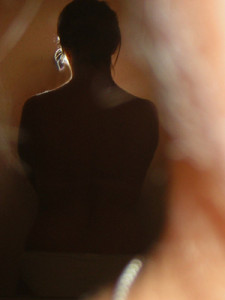National depression screening day – Oct 8th 2015

One in four of us at some time may go and see our GP suffering from feelings of depression. The most common form of treatment will be drugs or talk therapy, with group-based cognitive behavioural therapy being the most likely chosen. However, the effectiveness of this treatment is only modestly better than placebo.
Although the studies have shown antidepressants to be superior to placebo and cognitive behavioural therapy to be the best therapy, when all the studies including the unpublished ones are taken into account, this turns out not to be true.
New approaches being considered include light treatment, exercise, being outdoors in nature, bacteria and body clocks. My own experience with working with depressed clients backs these ideas up, starting with exercise. When we exercise outdoors, preferably somewhere green, it improves our mood. We’re getting the sunlight and physical activity that will help regulate our sleep and our body clocks. Many depressed clients find their circadian rhythms off. Many are having problems sleeping, often waking up early and feeling exhausted.
Sleep is important
I use a special CD or MP3, to help people sleep better, and realign their body clocks. In turn, they find they can get on with life in general. . They also find they’re coping better with day-to-day tasks. Normal sleep helps people reduce depression at block note swaps much faster and is now being considered a major treatment.
Being occupied can also help enormously. Many studies show that if people can be kept in their jobs, they feel less depressed. Having a sense of purpose to help, helping out in charity, the elderly, or working with animals have all been shown to increase people’s sense of well-being.
Finally, recent studies have shown that by adding lactobacilli to a diet from mice cuts are ability to get depressed. It shows that the microbiome is intimately connected with the brain, although this does not mean yoghurt will prevent depression. In a recent case. One woman came to me with severe anxiety after having a serious chest infection. The doctor had prescribed high doses of antibiotics, and after that she started to experience feelings of anxiety and panic. This in turn disrupted her sleep and she started to feel depressed. It was taking a toll on her work when she was finding it difficult to function three months down the line.
As well as a CD and several sessions of solution-focused hypnotherapy. I suggested she drink yoghurt with lactobacilli for breakfast, and she made a rapid recovery and went back to work feeling fine.
7 steps to feeling less depressed
If you’re feeling a bit down, before you make an appointment with your GP, just try changing the following things.
- Increase your time outdoors, walk to and from work, go for a walk at lunchtime.
- Go for walks in the country at the weekend.
- Sort out your body clock, by getting a decent amount of sleep at the right time.
- Eat some live yoghurt with your breakfast.
- If you can’t get outside, then buy a lightbox. They don’t cost a great deal and they are known to boost mood.
- If you’re at work, try and find ways of making your job less stressful. If you’re out of work, volunteering in the community can help enormously.
- Once you’ve got walking into your routine, then working out in the gym or going for a run, then prove it even more. The dopamine your brain produces will enhance your mood further.
So if depression is a problem in your life and you need some help with some of those changes – especially sleep – then call or text “depression” to 07508 658934, contact me.
